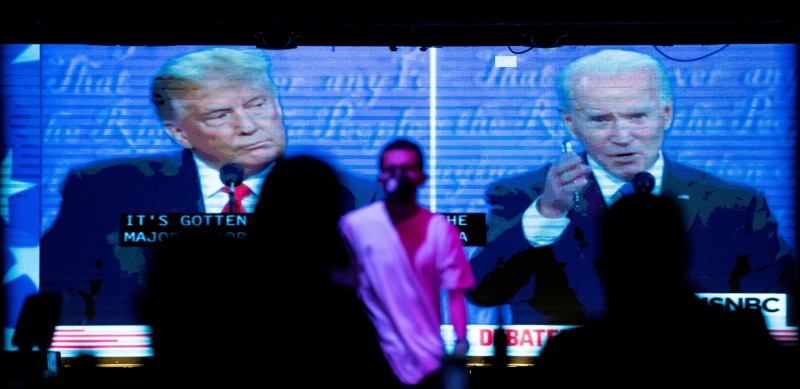
By Jongwon Lee
The author is an attorney.
Election season is upon us. After some local elections this November, next year we’ll have a presidential election, as well as elections for the U.S. Senate and House of Representatives. The year 2024 is likely to be a busy one, with Democratic and Republican primaries and local elections in the first half of the year and the presidential election in November.
This time around, both the Democratic and Republican parties will be particularly interested in Asian voters. It’s no secret that President Biden’s Democratic Party is already banking heavily on Asian voters. The Republican Party is also likely to do a lot to win over Asian voters. The GOP already has two Indian-Americans in the race for the party’s presidential nomination, former UN Ambassador Nikki Haley and Vivek Ramaswamy.
While we don’t yet know the opinions of the Korean American community as a whole, there are some interesting findings that provide a glimpse into the overall thinking of Asian American voters. The polling organization Pew Research Center surveyed 7,006 Asian voters, including Korean Americans.
The results showed that inflation is the top issue for Asian voters in the next election. Forty-one percent of respondents ranked inflation as their top priority. This was followed by economic inequality at 16%, with violent crime taking second and third place.
Among Korean American voters alone, 38% identified inflation as the most important issue for the next election, followed by inequality (19%) and climate change (12%).
Interestingly, the issues of racial discrimination and anti-Asian sentiment that have roiled the Asian community in recent years have subsided. Among Asian voters, only 6% of Republicans and 11% of Democrats cited racism as a major issue. Only 3% of Asian voters cited education quality as a priority. It remains to be seen whether economic issues, such as inflation, are so serious that anti-Asian sentiment and racism are more or less resolved.

Moreover, 97% of Asian voters said they would vote for a candidate based on their policies rather than their race. Asian voters are clear that they will not vote for a candidate just because he or she is Asian or a minority.
These results are somewhat different for Latinos, the second-largest group of voters. This is because older Latino voters cite immigration reform and race as their top issues, while younger Latino voters prioritize the economy and jobs.
As a result, Asian voters and young Latino voters see economic and jobs issues, including inflation, as more pressing than race and immigration issues. They are more concerned about the rising cost of living, the lack of jobs, and the resulting difficulties for small businesses due to inflation.
For too long, mainstream politicians have offered vague promises of “no racism, no ethnic discrimination,” without a deep understanding of Asian-American voters, including Korean Americans. But now, Korean American voters are demanding more. In next year’s election, Korean American voters are likely to ask sharp questions and make strong demands of candidates on how they will address inflation and revitalize the economy.


![North Korean commando-turned-South Korean pastor Kim Shin-jo passes away at 83 North Korean commando-turned-pastor Kim Jae-hyun, better known by his old name Kim Shin-jo [YONHAP]](https://www.koreadailyus.com/wp-content/uploads/2025/04/0409-pastor-100x70.jpg)
![Satellite images reveal North Korean warship building activity A satellite imagery of a North Korean ship [MAXAR TECHNOLOGIES]](https://www.koreadailyus.com/wp-content/uploads/2025/04/0409-ship-100x70.jpg)
![Korea, Japan, China to push for trilateral FTA to take on Trump’s tariffs U.S. President Donald Trump speaks during the National Republican Congressional Committee dinner at the National Building Museum in Washington on April 8. [REUTERS]](https://www.koreadailyus.com/wp-content/uploads/2025/04/0409-Trump-100x70.jpg)